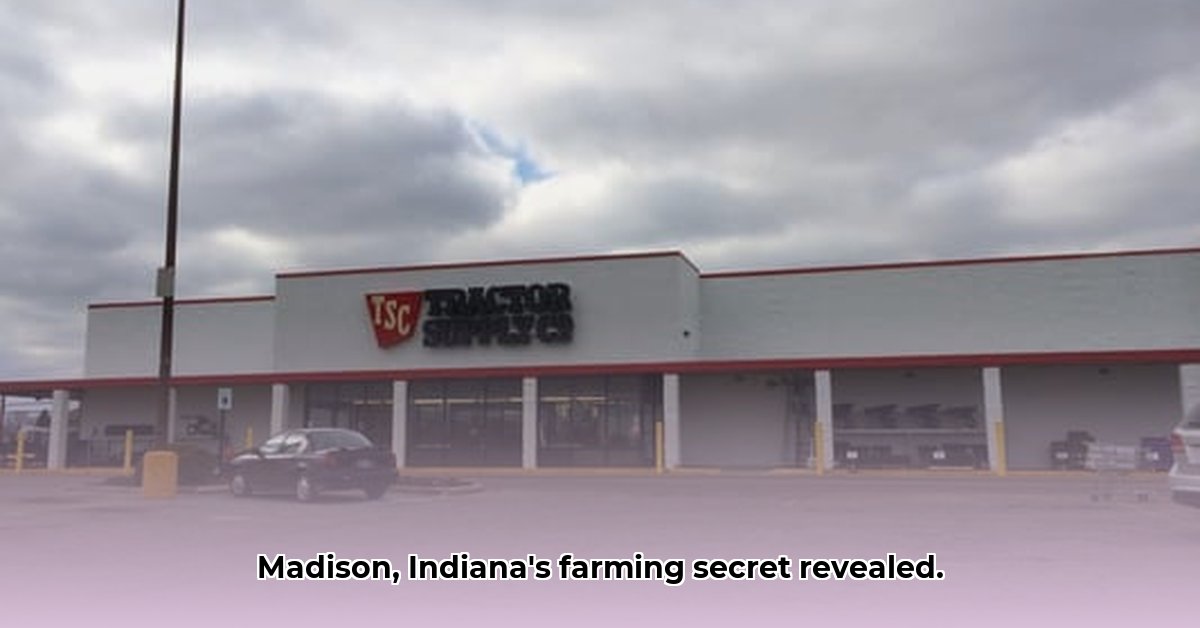
Tractor Supply's Potential Role in Sustainable Agriculture in Madison, Indiana
Tractor Supply Company (TSC) holds a significant presence in Madison, Indiana, and possesses the potential to become a key supporter of sustainable agricultural practices within the community. While specific details regarding their current sustainable initiatives in Madison are unavailable, examining their typical product offerings and community engagement strategies reveals opportunities for positive impact. This article explores how TSC could contribute to a more environmentally responsible agricultural landscape in the Madison area. For more information on similar Tractor Supply locations, see this example site.
What Could Tractor Supply Offer Madison's Sustainable Farmers?
Based on typical Tractor Supply store inventories, the Madison location likely offers a range of products that can support sustainable farming practices. These could include: organic and heirloom seeds suited to the Indiana climate; cover crop seeds to improve soil health and prevent erosion; water-efficient irrigation systems and components (drip irrigation, for example) to conserve precious water resources; and organic fertilizers and biopesticides to reduce reliance on harmful chemical inputs. The availability of such supplies would significantly benefit local farmers seeking environmentally friendly solutions. Could TSC further expand its offerings to include tools promoting biodiversity, such as beneficial insect habitats? This would provide a comprehensive approach to sustainable pest management.
Supporting Local Farmers Through Community Engagement
Beyond simply providing necessary supplies, Tractor Supply has the opportunity to actively support Madison's farmers through community engagement. Workshops and educational materials focused on sustainable farming practices, perhaps hosted at the store or in collaboration with local agricultural extension services, could significantly boost knowledge and adoption of environmentally responsible techniques. Imagine the impact of a workshop focusing on integrated pest management, followed by farmers readily purchasing the recommended biopesticides from the same store. This integrated approach would showcase Tractor Supply's commitment to the community and the environment. Does TSC have plans to create such valuable learning opportunities? This is a key area for future investigation.
Challenges and Opportunities: Bridging the Gap to Sustainability
Sustainable agriculture faces several challenges, including access to information and affordable, high-quality products. Tractor Supply is uniquely positioned to address these challenges. By stocking sustainably-sourced products at competitive prices, they can make these practices more accessible to a wider range of farmers. Furthermore, by providing a convenient, local source for these supplies, they eliminate the need for farmers to travel long distances seeking essential materials. This added convenience would incentivize the adoption of sustainable practices, further enhancing the environmental benefits.
Conclusion: A Call for Greater Transparency and Engagement
Tractor Supply in Madison, Indiana has the potential to play a significant role in advancing sustainable agriculture within the community. By offering a wider range of sustainable products and actively engaging with local farmers through educational initiatives and collaborations, Tractor Supply can be a catalyst for positive change. Transparency regarding their sustainability efforts and a commitment to actively supporting local farmers would further solidify their position as a valuable partner in building a more environmentally responsible agricultural future. Further research into the Madison store's specific offerings and engagement with the local farming community is needed to fully assess their current contribution and identify future opportunities for growth in this crucial area.
Key Takeaways:
- Tractor Supply's product offerings could significantly aid sustainable farming in Madison, Indiana.
- Community engagement initiatives, such as workshops, would further enhance their support.
- Addressing accessibility challenges (affordable products, readily available information) is key.
- Greater transparency from TSC regarding their sustainability initiatives is desirable.